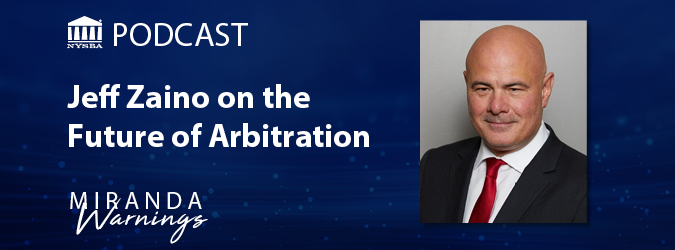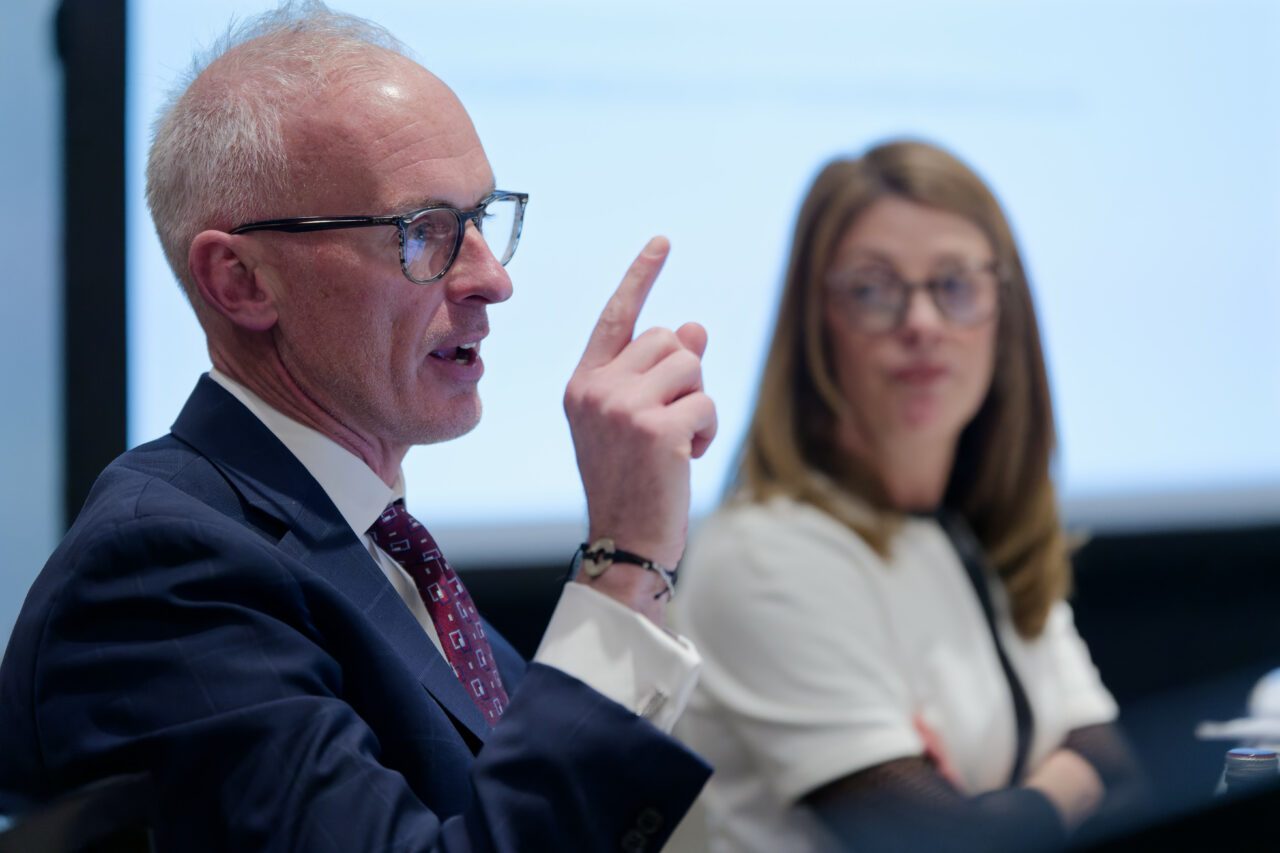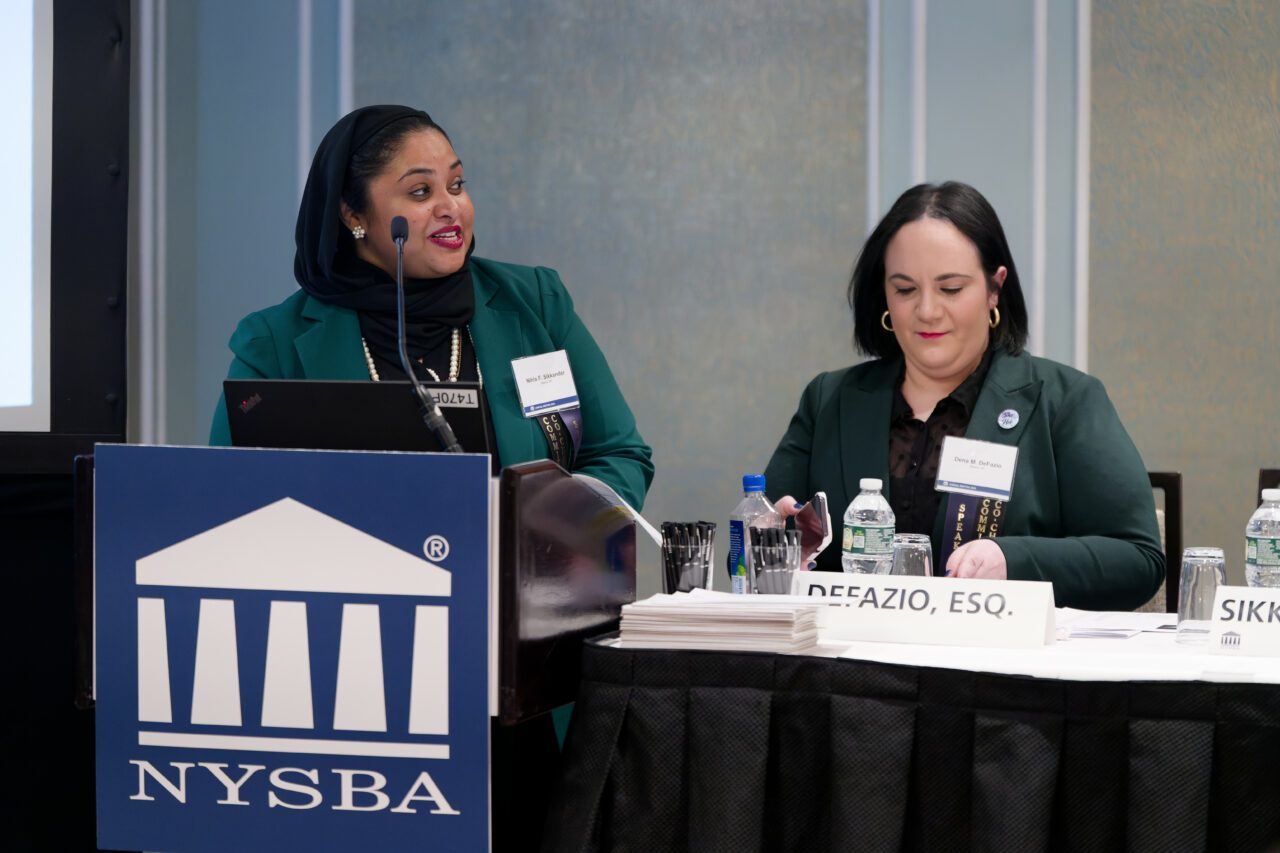Corporate Counsel Institute Takes on Workplace Issues
11.14.2023

An all-star lineup of chief legal officers from 19 prominent companies discussed a wide variety of topics, including data security, employee mental health and diversity, equity and inclusion at the New York State Bar Association’s 10th Corporate Counsel Institute. The offices of Kelley Drye & Warren in New York City hosted the all-day event.
Data Security
A panel discussed new cybersecurity requirements for financial service companies that started on Nov. 1 when the second Amendment to 23 NYCRR 500 became effective. The regulations, in part, ask that companies with more than $20 million in gross revenue conduct regular independent audits of their cybersecurity programs, monitor who has access to privileged information, and implement a backup plan to monitor hackers and other security breaches.
“These regulations are landmark because they are going to trickle down to every institution and every organization,” said Theo Tomita III, chief information security officer at RiskQ. “New York State is a regulated state. They love their regulations, and that’s why they were the first out of the gate with this.”
All companies now need to report cybersecurity threats and ransomware attacks to the New York State Department of Financial Services – this includes attempted and unsuccessful attacks.
The panelists explained that cybersecurity involves knowing where data is stored, who can access it, how to manage remote access, and how to get rid of data that is no longer necessary.
“Consider at your companies, at your law firms, how much of your tangible value is tied up with the data and systems that are integrated into your operations,” said Yanai Siegel, corporate counsel, planning & development at Appliance Dealer’s Cooperative. “If your systems went down, how much would your company lose? These are your digital assets, and cybersecurity programs are designed to protect your digital assets.”
Mental Health
Vicki Walcott-Edim, senior managing counsel, global employment law at Mastercard, discussed what employers should know when dealing with employees’ mental health issues and mental illness. “It’s an issue that’s a sensitive one,” she said. “It’s one that affects many of us, if not all of us. Whether it’s individually and personally, or perhaps it’s someone that we know, someone who we care about, or just being generally aware of the issue.”
Walcott-Edim said that employers should be aware that people with mental health conditions are able to take leave under laws like Family Medical Leave Act or receive accommodations with laws such as the Americans With Disabilities Act.
Walcott-Edim also cited reports and global trends that point to the increase of mental health issues and challenges in the workplace, including laws that have reduced working hours and increased sick leave. “Covid, clearly, is a major driver for why things have changed,” she said. “You look at all of the macro issues that we’re all dealing with as a society, from Covid to social justice, social unrest. You look at the geopolitical crises, you look at wars. It’s a lot. And I think those micro- or macro-issues are coming into the workplace and affecting people as to be expected.”
Another issue affecting mental health in the workplace, according to Walcott-Edim, is that work in general is more stressful. She also presented scenarios about employees who had issues at work, emphasizing the need to look at group dynamics and who is best suited to address an issue with an employee.
“The big picture is wellness is a broader issue,” said Walcott-Edim. “It’s more of a collective workplace issue, not just the individual. And employers really have an opportunity to lead here, with grace and compassion, to create inclusive environments for people and to be employers of choice.”
Diversity, Equity and Inclusion
After race-conscious admissions at Harvard and the University of North Carolina were struck down by the Supreme Court, corporations are considering the possible effects on their diversity, equity and inclusion programs.
“We all know this decision is important, but it hasn’t changed the law in the fundamental way,” said My Chi To, executive vice president, chief legal officer and corporate secretary at Voya Financial. “We can’t discriminate the old-fashioned way, we can’t reverse discriminate. That hasn’t changed… I think all of us are focused on diversity because we think it’s good for organizations.”
Nishka Chandrasoma, vice president, chief legal officer and secretary at the Ford Foundation, said that while there have been more lawsuits against corporate DEI programs, that does not mean companies should draw back from their current efforts. “I think you do need to consult with specialized anti-discrimination counsel,” she said. “Because there are experts who can tell us how to stay within the lines of current law and can keep us abreast of how case law is developing.”
Kimberley Harris, executive vice president and general counsel at NBCUniversal Media, noted that DEI has different goals and meaning outside of the United States. “I was just in our Asia offices last spring,” she said. “Diversity there is really focused on women and making sure that we are bringing more women into the organization and helping the advancement of women within the organization. Because those societies, and as a result, the offices, tend to be very male dominated.”






